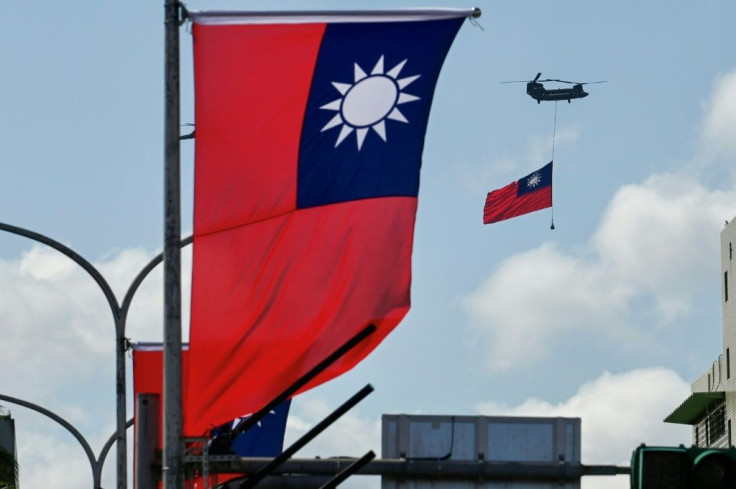Britain Wants NATO To Protect Taiwan. Good or Bad Idea?
Great Britain wants the North Atlantic Treaty Organization (NATO) to expand its reach from the North Atlantic region into the Indo-Pacific region to defend democracies like Taiwan, according to a speech by Britain's Foreign Secretary Liz Truss last week calling for a "global NATO."
"I mean that NATO must have a global outlook, ready to tackle global threats," Truss said, as quoted by Politico. "We need to preempt threats in the Indo-Pacific, working with allies like Japan and Australia to ensure that the Pacific is protected. We must ensure that democracies like Taiwan are able to defend themselves."
The statement drew an angry response from Beijing, calling it an "imperial dream" in a Global Times editorial.
"Even as their own strengths continued to decline, some British and American politicians began to fantasize about 'mind control' — namely to reestablish the global 'superiority' of Anglo-Saxon civilization," the editorial said. "Truss herself does not hide this, calling on Britain in a speech last year to stop the guilt about colonial history and instead be proud of its identity and status."
Is it a good or bad idea for NATO to expand its reach into the Indo-Pacific region?
It's undoubtedly a good idea for America's allies, especially Japan, which would feel threatened following China's possible invasion of Taiwan. It's a good idea for America's Asian allies like the Philippines, which have been intimidated by China in the South China Sea. And for ensuring the freedom of navigation in the vast sea.
Michael Edesess, managing partner and special advisor at M1K LLC, thinks it's a bad idea.
He believes China has no plans to invade Taiwan.
"The talk of China 'invading' Taiwan comes not from China, but only from Western countries and Australia, all of which are — far too much so — in the thrall of the United States," he told International Business Times. "China has no intention of invading Taiwan. The status quo between the two is satisfactory to both."
Edesess thinks that NATO's extension to the Asia-Pacific could be a dangerous gesture.
"The U.S., and its British and Australian allies, are seeing the world through a faulty Manichean black-or-white lens, categorizing countries as democratic or authoritarian, and therefore 'free' or 'tyrannical,' without understanding shades of grey," he said. "This kind of division of the world or of peoples between good and evil is not only absurdly simplistic, but dangerous, as is Liz Truss' statement."
Juscelino Colares, a professor of business law and co-director of the Frederick K. Cox International Law Center, finds Truss' idea unworkable and doomed to fail. His main argument is that the ideological conditions behind the China-Taiwan conflict are much different from those behind the Russian-Ukraine conflict.
"Ukrainians are not fighting for democracy, much less for the right to join the EU or NATO," Colares told IBT. "Rather, Ukrainian men and women are willing to die to ensure their nation has an independent future that guarantees freedom to their families and communities, all within a sense of shared identity as Ukrainians, a people clearly distinct from Russians. Nothing could be more existential than that. The Russians, in turn, not unlike the Chinese vis-à-vis Taiwan, could care less for the liberal international order."
This sort of "existential" or "cosmopolitan" view of the world doesn't apply in the case of Taiwan, according to Colares.
"The existential appeal of self-determination or lack thereof would explain why UK Foreign Secretary Liz Truss' idea of turning NATO into a global alliance that might extend to protect Taiwan is unworkable and, thus, doomed from the start," he added.
He agrees that a NATO expansion into the Indo-Pacific could be beneficial for America's and Britain's allies in their efforts to contain China.
"Closer coordination among AUKUS [the Australia-United States-United Kingdom security pact designed to counter China's expansionist plans], New Zealand, Japan, and perhaps India, makes a whole lot of sense, particularly if they spell out, ex-ante and credibly, that the costs of a potential invasion of Taiwan would be extraordinarily high," he said.

© Copyright IBTimes 2024. All rights reserved.






















